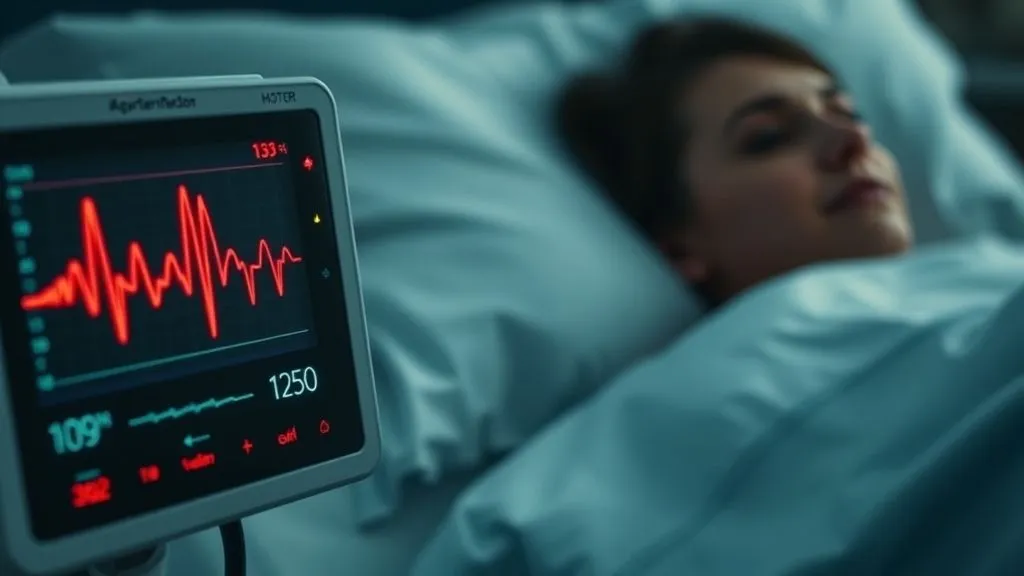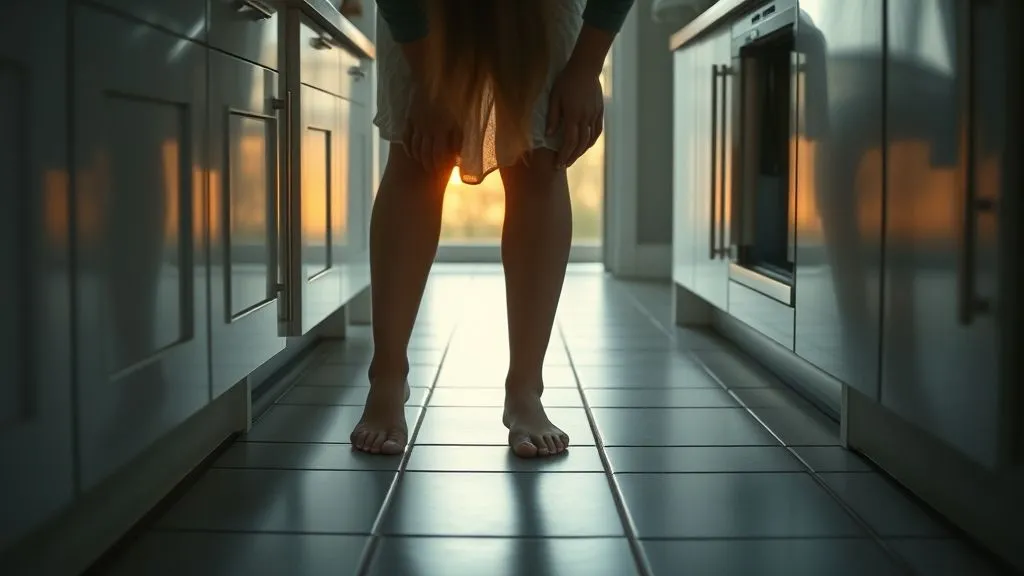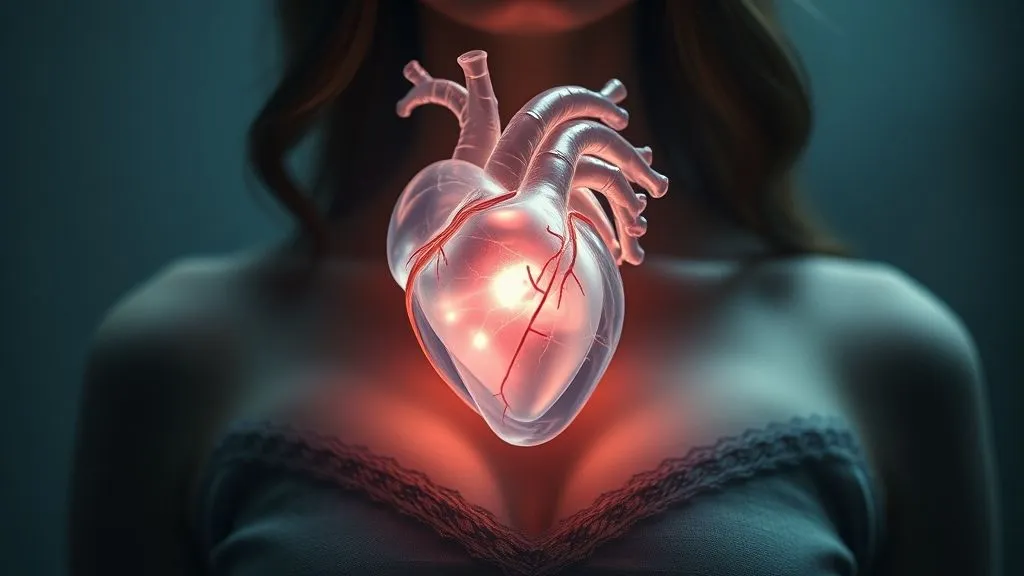
You think it’s just grief. A storm that passes. But then it presses harder — a weight in your ribs, your breath shortening, your heart skipping in panic. You lie awake at night and wonder: Am I just sad… or is something actually wrong with me? The truth is: a Broken Heart doesn’t only happen in your emotions. It can echo through your nervous system, immune system, and even your actual heart. And yes — in rare but very real cases — it can kill you. Doctors call it Takotsubo Cardiomyopathy, but most of us know it as Broken Heart Syndrome. It mimics a heart attack, often comes on suddenly after loss, and is more common in women—especially those who’ve been holding pain in silence.
The Body Remembers the Goodbye
But this isn’t just about science. It’s about what happens inside your soul when someone leaves and the world keeps moving like nothing changed. You’re not being dramatic. You’re not “too sensitive.” You’re human—and a Broken Heart is real, physical, and sometimes dangerous. So let’s begin at the beginning: not with the diagnosis, but with the feeling you woke up with after the goodbye
When pain starts moving from the soul, your thoughts start entering into the body
Grief is not a thought. It’s not an idea you can reason with. It’s that pressure in your chest, the pain that builds in out warning. The dizziness that strikes after a memory hits you in the grocery aisle. The sudden weakness in your arms when you reread old texts. For many, heartbreak brings on:
- Shallow breathing that feels like you’re being suffocated from the inside
- Fatigue that no amount of sleep fixes
- Appetite loss or nausea because your stomach feels too full of emotions to eat
These aren’t just symptoms. They’re the body crying out for safety after it lost its emotional home. And the body doesn’t know the difference between a death and a breakup — not at first. The nervous system interprets both as abandonment. Both as threat. Both as danger.

Why women are more at risk than we realize
Women tend to feel deeply, but also hold deeply.
Responsibilities. Emotional labor. Expectations to “stay strong.”
So when heartbreak hits, it doesn’t just hit emotionally — it hits hormonally, neurologically, and physiologically.
Estrogen plays a role in heart regulation.
Cortisol spikes from stress interfere with blood pressure.
And when the heartbreak isn’t processed or expressed, it stays inside — like a slow leak poisoning your system.
Doctors report more women than men showing up with symptoms of Broken Heart Syndrome after a major loss or emotional trauma.
And most had normal hearts before it happened.
This isn’t just a metaphor.
It’s medical. It’s real.
It’s your body saying: “I need help. I can’t carry this alone anymore.”
It’s not all in your head — it’s also in your heart
What you’re feeling isn’t weakness. It’s biology reacting to heartbreak like it would to war. Your adrenaline rises. Your heart beats harder. Your brain gets foggy. You cry, then go numb. You can’t sleep — then you oversleep. This is the body trying to survive something it can’t escape. So if you’ve ever wondered:
- “Why does my chest hurt when I think about them or remember them? Why can’t I forget them ?”
- “Why does this heartbreak feel so very painful, like I’m dying?”
You’re not crazy. You’re not alone. And you’re not broken. You’re feeling the trauma of loss — and your body is trying to make sense of it.
When the body carries what the heart can’t say
You don’t always scream when your heart breaks. Sometimes, your body whispers it instead. It shows up as that tightness in your ribs when you try to laugh. As headaches that don’t respond to water or sleep. As that dull throb in your chest when a memory hits just right. This isn’t poetic exaggeration. This is real biology. And it’s how Broken Heart Syndrome quietly creeps in — when your emotional system collapses, and your physical system tries to hold what’s left.
The Science Your Pain Already Knows
Let’s go deeper now — into the science your pain has already been living. When emotional trauma floods your body with stress hormones, your heart can literally stun itself. It’s not weakness. It’s a physiological response to overwhelming loss — your body’s raw, honest reaction to a Broken Heart. Understanding this isn’t meant to frighten you. It’s meant to validate what you feel deep down: that this pain is real, it’s physical, and it deserves care, not criticism.
The invisible trauma of Takotsubo Cardiomyopathy
Takotsubo Cardiomyopathy. The name sounds foreign. Cold. Clinical. But what it means is deeply human. It’s named after a Japanese octopus trap — a pot with a narrow neck and a wide bottom. Because when this kind of Broken Heart strikes, the heart itself literally changes shape, ballooning out like the trap itself. It mimics a heart attack. Sudden chest pain. Shortness of breath. Fainting. But when you’re rushed to the hospital, your arteries are clear. Your heart was healthy. So what happened?
Emotional shock. The sudden release of stress hormones — adrenaline, cortisol, norepinephrine — floods your system. It stuns your heart. It paralyzes the muscle. And in the worst cases, it causes the heart to temporarily stop functioning properly. It’s not in your head. It’s not you being “overly emotional.” It’s real. And more common than most realize.

The heartbreak triggers no one talks about
It doesn’t have to be a romantic breakup. It can be:
- The loss of a parent
- The betrayal of a best friend
- Losing a child, a dream, a home
- Long-term emotional neglect that finally breaks the dam
Any trauma that overwhelms your emotional coping capacity can tip the scale. And women — especially in their 40s, 50s, and beyond — are more susceptible. Why? Because we’ve spent decades absorbing pain quietly, managing others’ needs, minimizing our own. And suddenly the body can’t take it anymore. The moment you finally feel, it floods everything. This is the silent, physical cry of a Broken Heart—when the soul’s pain becomes too heavy for the body to silently carry.
What grief does to your nervous system
Your body releases hormones to help you survive what it thinks is an immediate danger. But heartbreak isn’t a wild animal chasing you — it’s internal. There’s no escape. And so your body becomes trapped in a loop:
- Rapid heart rate
- Shallow breathing
- Chest constriction
- Muscle tension
- Digestive shutdown
- Fatigue that feels cellular
This is why you can’t just “move on.” This is why you feel sick. This is why your hands shake when you see their name, even weeks later. Your body hasn’t caught up to the story your mind keeps trying to tell: It’s over. It’s done. But the body doesn’t believe in closure. It believes in safety. And right now, it doesn’t feel safe.
How heartbreak affects women differently
Heartbreak doesn’t land in the same places for everyone. For women, it often settles deep in the chest, belly, and joints. Why?
Because many women carry pain in silence. They function while grieving. Smile while shattered. And that unexpressed pain metabolizes into the body. Women are also hormonally more vulnerable to stress-related cardiovascular issues. Estrogen usually protects the heart — but during menopause or times of intense stress, those protective hormones drop. And the heart becomes more vulnerable to the effects of emotional shock. This is why Broken Heart Syndrome tends to hit older women more.
Not just sad — truly, physically unwell
If you’re still wondering whether heartbreak can kill you — know this:
It has. it can. But it doesn’t have to. Most people survive Takotsubo Syndrome. The heart, if cared for, recovers.
But the emotional healing takes longer. You can be discharged from the hospital and still wake up feeling like you’re dying. You can get the “all clear” and still feel like nothing inside you is okay. And that’s why this conversation matters. Because the world says: “It’s just heartbreak.” But you know — it feels like something deeper. Like your body is grieving something it was never taught how to let go of.

The slow return to safety after heartbreak
There’s a point after the collapse — after the breathless sobs, after the nights your chest burned from the inside — when the silence becomes something else. Not emptiness. But space. Space for healing. Space to begin again — not with forgetting, but with remembering yourself. This part isn’t about rushing. It’s about reclaiming safety inside your own body, one fragile, holy moment at a time. Because yes — heartbreak can shake your nervous system, mimic a heart attack, leave you weak and dizzy and lost. But it can also become the doorway back to you.
Gently re-teaching your body that love doesn’t always mean danger
When your heart breaks, your body gets stuck in survival. To heal, you don’t need to “move on.” You need to move inward — to the quiet places where grief lives in muscle, breath, and heartbeat. Here’s how the nervous system slowly begins to feel safe again:
- Regulated breath
Try inhaling for 4 counts, holding for 2, exhaling for 6. Long exhales tell your body: we’re not in danger anymore.
Do this when you wake, when you cry, when you’re scrolling through old photos at midnight. - Physical grounding
Press your feet into the floor. Touch something cold or textured.
These simple acts remind your body: we’re here. We’re real. We’re alive. - Sound and rhythm
Soft music, humming, the gentle thump of your own heartbeat against your palm — these reintroduce calm into the space where panic once lived.
Your healing won’t be linear. Some days, the pain will sneak back in like fog. That’s okay. You’re not failing. You’re just remembering.
Letting grief speak without rushing it to be over
Your chest still aches sometimes. Your breath still catches when a memory hits you sideways. This isn’t weakness. It’s evidence: you loved. Let the grief come. Let it speak in body language — in trembling hands, in tight shoulders, in tears that rise without explanation. And then — offer it kindness.
- A warm bath, not as luxury, but as return
- A journal entry where you don’t censor the rage or longing
- A soft meal when you haven’t felt hunger in days
These are not “coping mechanisms.” These are acts of devotion to the you that is still here.
Healing isn’t forgetting — it’s remembering your wholeness
So often, we think healing means becoming who we were before the pain. But what if it means becoming someone wider?
Someone who now knows how deeply she can love. Someone who has held grief in her body and still wakes up every morning trying. Someone who saw what heartbreak can do — and chose to stay alive anyway. And the woman who feels all of it — rage, softness, confusion, hope — is the woman who is healing, even when she doubts it.

What if the breaking was a beginning?
Let this be your quiet truth: You survived what felt like the end. You lived through the night your body forgot how to breathe. And now, step by trembling step, you’re learning to return to yourself. No rush. No timeline. Just breath.
Just the steady miracle of still being here. And if you still wonder whether heartbreak can kill you — know this: It tried.
But you? You are still standing. And that… is everything.
💠 Gentle Final Thoughts:
- If your chest hurts — physically — get help. Don’t dismiss it as “just sadness.”
- If you feel hopeless, numb, or spiraling — reach out.
- You don’t have to heal alone.
There is nothing weak about needing help. There is nothing shameful about loving so much it hurt. You’re human. You’re healing. And your heart is wiser now — not because it stayed safe, but because it broke and still beats.
Disclaimer: This article discusses the emotional and physical impacts of heartbreak, including information about Takotsubo Cardiomyopathy (Broken Heart Syndrome). It is intended for informational and supportive purposes only and is not a substitute for professional medical advice, diagnosis, or treatment. If you are experiencing severe physical symptoms such as chest pain, shortness of breath, dizziness, or fainting, please seek immediate medical attention. Always consult with a qualified healthcare provider for any medical concerns or questions you may have.
Disclaimer: This post is for informational and emotional support purposes only. Every relationship is unique, and this is not professional legal, medical, or mental health advice. Read our full disclaimer.
Affiliate Disclosure: Some links in this post may be affiliate links. If you make a purchase through them, I may earn a small commission at no extra cost to you. Learn more here.
Pingback: Heart Physically Hurt After a Breakup? - Love and Breakups